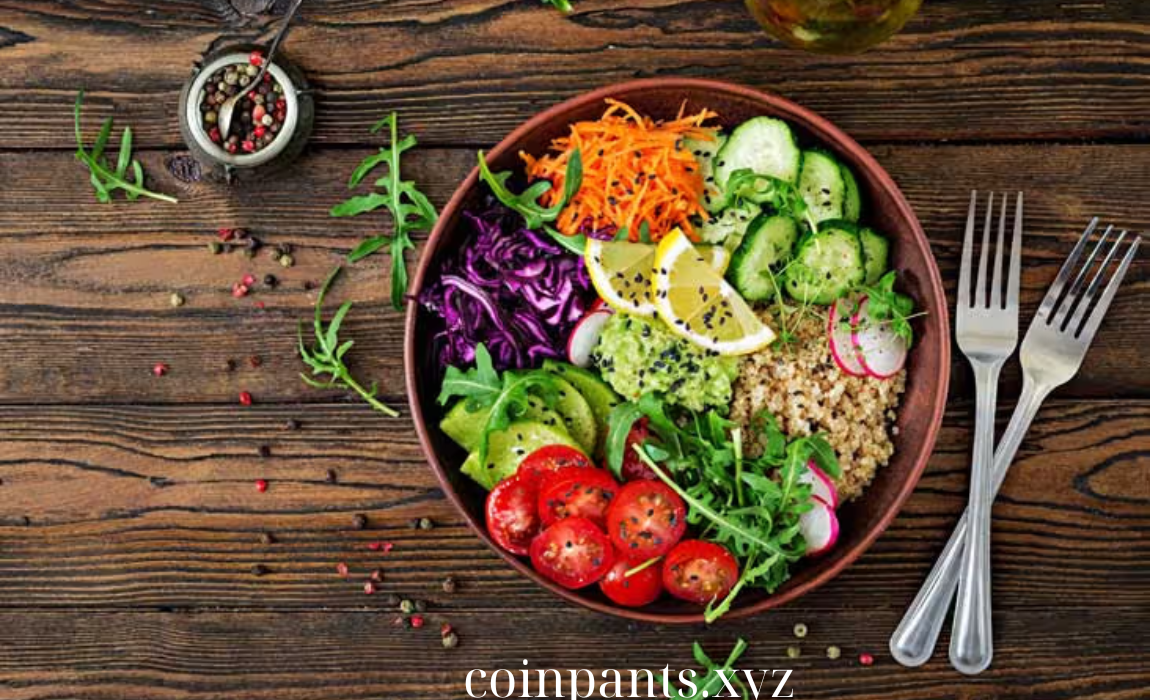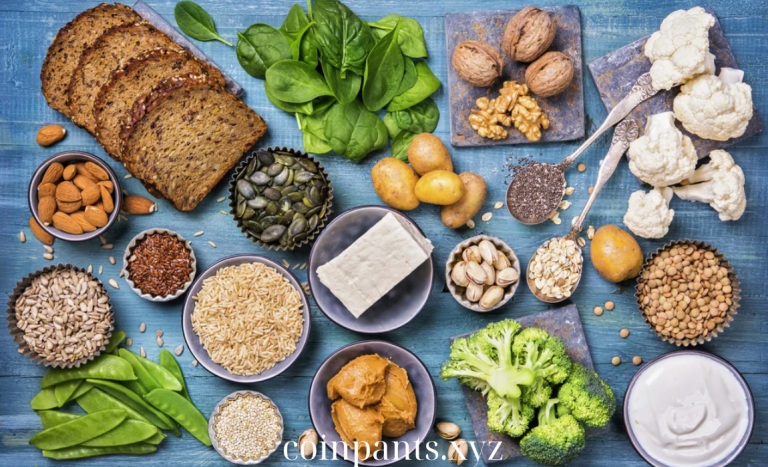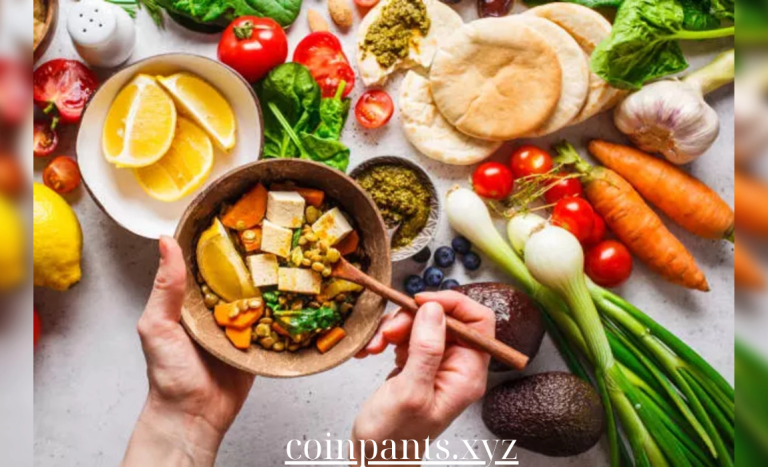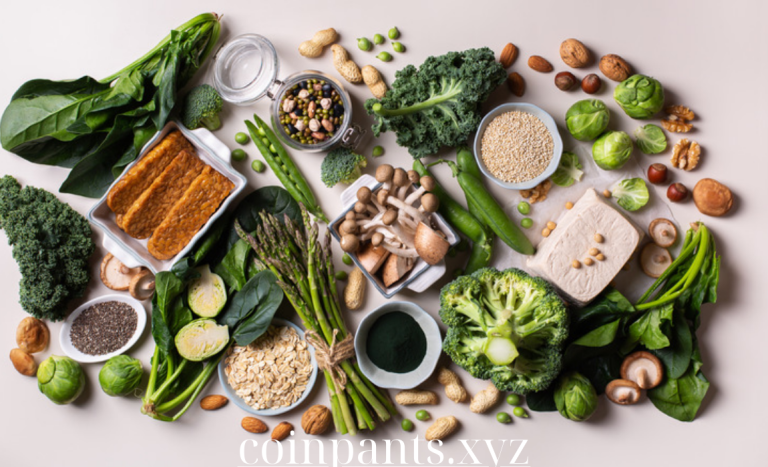
Embracing a vegan lifestyle can do wonders for your health and overall well-being, as long as it’s carefully balanced and rich in essential nutrients. A well-planned vegan diet not only provides all the fuel you need to thrive but can also enhance your energy levels, promote longevity, and improve your mental clarity. This guide offers practical advice on creating healthy eating plans for vegans that are delicious, diverse, and tailored to boost your well-being.
1. Prioritize Whole, Nutrient-Dense Foods
At the heart of every healthy vegan diet should be whole, unprocessed plant-based foods. By focusing on these nutrient-dense options, you’ll get the vitamins, minerals, and antioxidants your body needs to function at its best.
Essential Foods:
- Leafy greens (kale, spinach, Swiss chard) for iron, calcium, and fiber.
- Fresh fruits (berries, apples, oranges) for vitamins and antioxidants that boost immunity.
- Legumes (lentils, black beans, chickpeas) for protein, fiber, and folate.
- Whole grains (quinoa, farro, oats) for sustained energy, fiber, and B vitamins.
- Nuts and seeds (chia seeds, almonds, hemp seeds) for healthy fats, omega-3s, and protein.
2. Focus on Plant-Based Protein Sources
One of the key aspects of a vegan diet is ensuring that you’re consuming enough protein to meet your body’s needs. Thankfully, there are plenty of protein-rich plant-based options that are both satisfying and versatile.
High-Protein Vegan Foods:
- Tofu and tempeh: Perfect for stir-fries, sandwiches, or grilling.
- Quinoa: A complete protein source that is easy to include in salads, bowls, or side dishes.
- Lentils and beans: Excellent for hearty soups, stews, or veggie burgers.
- Edamame: Ideal as a snack or in salads, rich in protein and fiber.
- Chickpeas: Use in hummus, salads, or roasted for a crunchy snack.
3. Incorporate Healthy Fats for Energy and Vitality
Healthy fats are crucial for heart health, brain function, and the absorption of fat-soluble vitamins like A, D, E, and K. Incorporating a range of plant-based fats in your diet can help you maintain a balanced approach to your meals.
Best Sources of Healthy Fats:
- Avocados: Perfect for smoothies, toast, or as a creamy addition to salads.
- Nuts (almonds, walnuts, cashews): Ideal as a snack or sprinkled on oatmeal and salads.
- Seeds (flaxseeds, chia seeds): Add to smoothies or oatmeal for omega-3s and fiber.
- Olive oil: A heart-healthy oil perfect for dressings and light cooking.
4. Ensure a Colorful Variety of Vegetables
“Eating the rainbow” isn’t just about aesthetics — each color represents different essential nutrients. A diverse array of vegetables can help ensure that your diet is packed with vitamins and minerals.
Nutrient-Packed Veggies:
- Cruciferous vegetables (broccoli, cauliflower, Brussels sprouts): Rich in fiber, vitamins C and K, and antioxidants.
- Root vegetables (sweet potatoes, beets, carrots): High in beta-carotene, potassium, and fiber.
- Colorful bell peppers: Loaded with vitamin C and antioxidants, ideal for salads or stir-fries.
5. Optimize Your Iron and Calcium Intake
Vegans must pay special attention to iron and calcium, as plant-based sources of these nutrients are less easily absorbed by the body compared to animal products. However, you can boost absorption by pairing iron-rich foods with vitamin C and consuming calcium-fortified products.
Best Sources of Iron:
- Lentils, chickpeas, and kidney beans: Great in soups, stews, or salads.
- Pumpkin seeds and sunflower seeds: Ideal as a snack or salad topping.
- Dark leafy greens: Spinach, kale, and Swiss chard are iron-rich options for smoothies or stir-fries.
Best Sources of Calcium:
- Fortified plant-based milks (soy, almond, oat): Ideal for cereal, smoothies, or coffee.
- Tofu and tempeh: Often fortified with calcium and easily added to any meal.
- Tahini and almonds: Both are high in calcium and can be used in sauces, dressings, or as snacks.
6. Plan Your Weekly Meals for Balance
Planning ahead is key to maintaining a healthy vegan diet. By mapping out your meals for the week, you ensure that you’re consuming a variety of nutrients and not relying too heavily on processed or convenience foods.
Sample Vegan Meal Plan:
- Breakfast: Smoothie with spinach, banana, berries, chia seeds, and almond butter.
- Snack: Fresh fruit with a handful of almonds.
- Lunch: Quinoa and black bean salad with avocado, tomatoes, and lemon-tahini dressing.
- Snack: Carrot sticks and hummus.
- Dinner: Lentil and vegetable stir-fry with brown rice and sesame seeds.
- Dessert: Chia seed pudding with almond milk and fresh fruit.
7. Don’t Forget About Vitamin B12, Omega-3s, and Vitamin D
Although most nutrients can be easily obtained from a balanced vegan diet, vitamin B12, omega-3 fatty acids, and vitamin D are important nutrients that may require supplementation or fortified foods. Including these in your diet will help ensure you’re maintaining energy and preventing deficiencies.
Key Supplements to Consider:
- Vitamin B12: Essential for nerve health and energy production, best taken as a supplement or found in fortified foods.
- Omega-3 DHA/EPA: Algae-based supplements are the best source of these essential fats for brain and heart health.
- Vitamin D: Critical for bone health and immune function, especially if you live in areas with limited sunlight.
8. Stay Hydrated and Energized
Hydration is just as important as your diet when it comes to maintaining optimal health. Drinking plenty of water throughout the day helps your body absorb nutrients more effectively, boosts metabolism, and keeps your skin healthy. Herbal teas and infused water are great alternatives to sugary drinks.
Conclusion
A well-balanced vegan diet can be the key to boosting your well-being and vitality. By focusing on whole, nutrient-dense foods, ensuring adequate protein and fat intake, and paying attention to essential nutrients, you can create a meal plan that fuels your body and supports a healthy lifestyle. Make your meals colorful, varied, and nutrient-rich to not only enjoy delicious flavors but also thrive on a plant-based diet.






